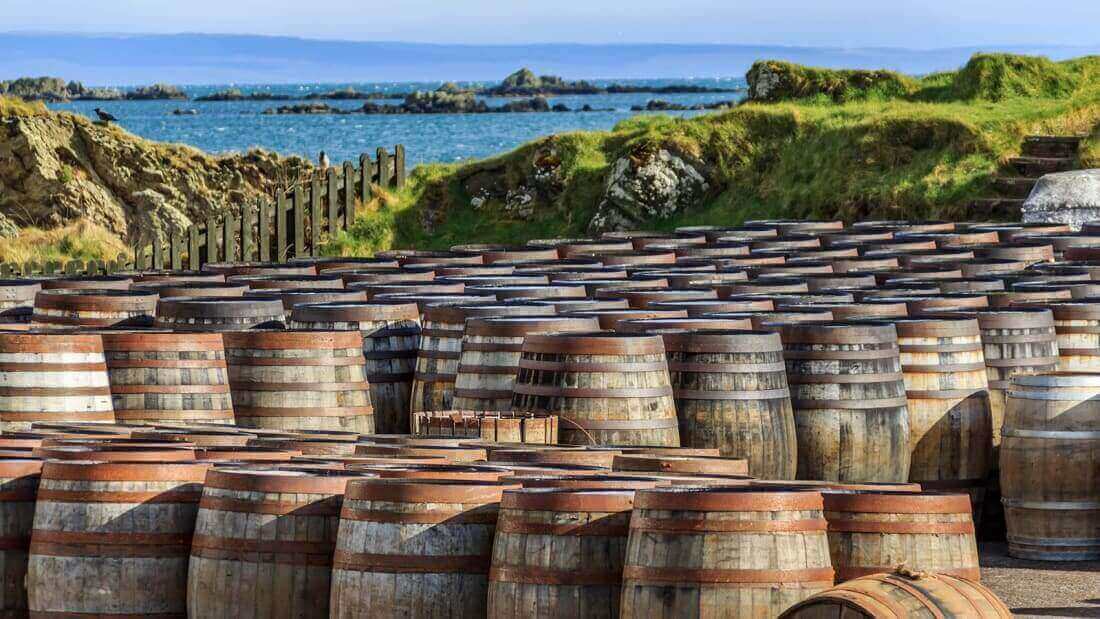

1. revered (v)
to very much respect and admire someone or something
2. distillery (n)
a factory where strong alcoholic drinks are produced by the process of distilling
3. dram (n)
a small amount of a strong alcoholic drink, especially whiskey
4. drenched (v)
to make someone or something extremely wet
5. furloughed (n)
a period of time that a worker or a soldier is allowed to be absent, especially to return temporarily to their own town or country
6. buffeted (v)
(of wind, rain, etc.) to hit something repeatedly and with great force
7. outcrop (n)
a large rock or group of rocks that sticks out of the ground
Scotland's whisky islands are dealing with a major Covid hangover

Off the southwest coast of Scotland lies a collection of small islands that make some of the most distinctive whiskies in the world.
Names like Ardbeg, Lagavulin and Laphroaig are revered by whisky lovers from Japan to New York, from Australia to St Petersburg. Yet those three ancient distilleries are not only on the same island — Islay — they are lined up together on a narrow two-mile stretch of coastal road on Islay’s southern shore.
Nearby, across a 500-meter stretch of water, the island of Jura also produces whisky, a less smoky, more herbal dram from an almost deserted landscape. And nearer to the mainland stands mountainous Arran. This island is also unique in being the only whisky-producing outcrop that makes Highland whisky on its north coast and Lowland on its south.
These rugged islands, drenched in mist and buffeted by the roar of the Atlantic, are hugely important to the Scottish whisky industry. And whisky itself is vital for the Scottish economy.
Just as the champagne industry cannot be allowed to fail in France’s Champagne region, so Scotland protected its whisky industry as best it could during the Covid lockdown. This inevitably affected the local economy. Ten thousand people work in the Scottish whisky industry, the majority of them — 7,000 — in remote areas like the Highlands and the islands.
“All distillery staff were furloughed during lockdown,” says John Campbell, manager at Islay’s Laphroaig Distillery. “It was very quiet on the island and good to be able to go out for a walk and not meet anyone.”
Resource: https://edition.cnn.com/travel/article/scotland-whisky-islands-covid/index.html

- Do you think we should try to make alcohol illegal? What might be the result if we did?
- What was interesting in this article?
- How important is alcohol in your culture?
“Too much of anything is bad, but too much good whiskey is barely enough.”
Mark Twain

 A
A


